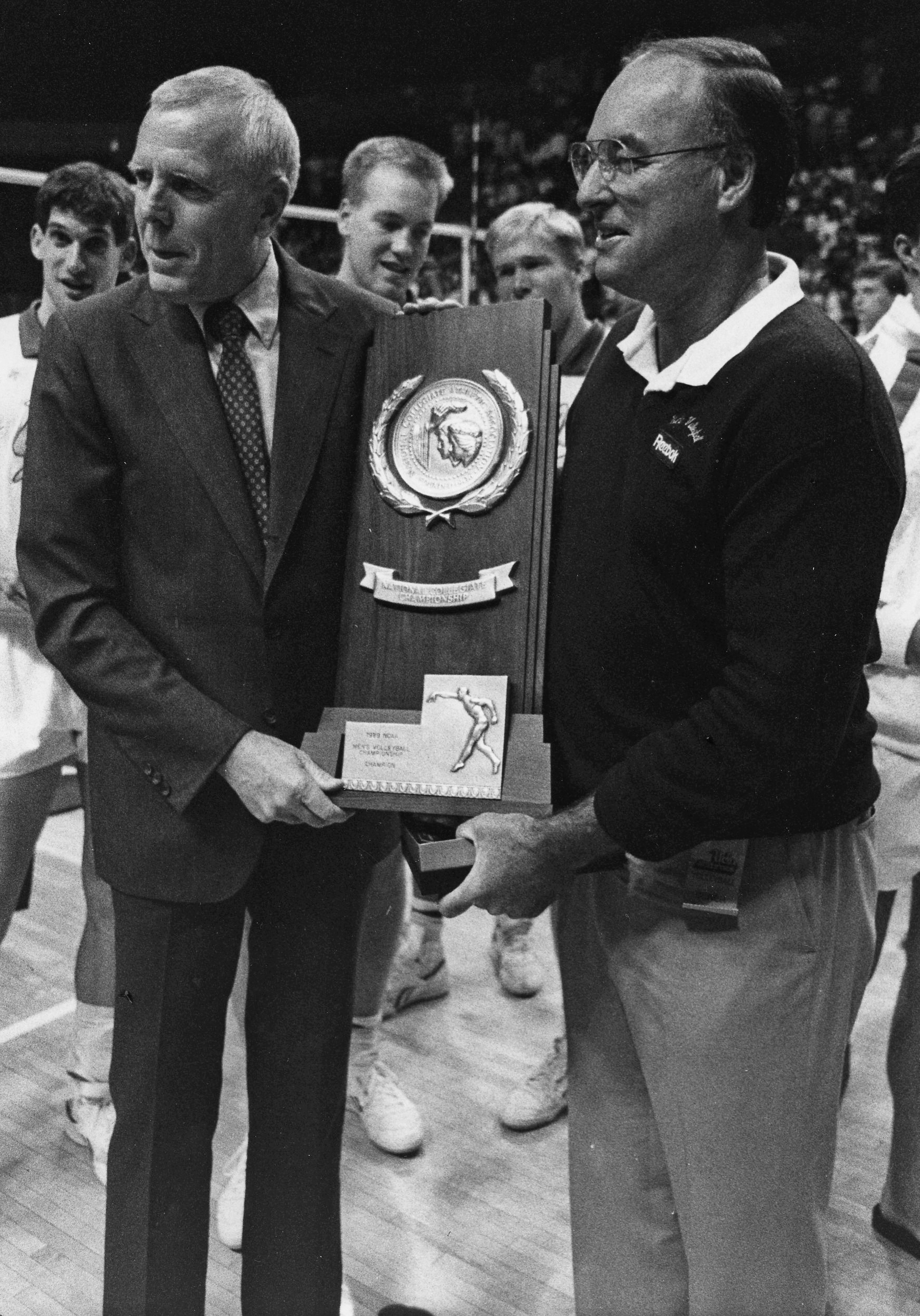The modern sports industry is a dirty, mutilated shell of what it once was.
College football scandals robbed us of our innocence, Tiger Woods and Kobe Bryant betrayed our trust and steroid use in baseball corrupted our national pastime.
Every day, a different star comes crashing down to earth following a humiliating off- the- field scandal.
It can be hard to love sports knowing the people behind the jerseys; every day I see my Twitter feed mutating into something that resembles a police radio scanner. It’s saddening.
As an aspiring sports journalist, it’s a tough pill to swallow knowing that I am about to enter such a corrupt field, even if it is of my own choosing. Fortunately, there is one bright light in the darkness. That light is Al Scates.
He is one of those rare illuminated figures who seems to outshine the darkest of stories, whose light exists even in a vacuum.
He’s enough to make up for the bad.
Peyton Manning in a Broncos jersey, Kevin Durant lobbing to Russell Westbrook ““ those are enough to make you like sports.
Al Scates is enough to make you love them.
Scates defined coaching excellence, setting virtually insurmountable records during his 50 years as the UCLA men’s volleyball coach, taking the sport far from its humble beginnings after first performing as an All-American outside hitter in the 1960s.
He won more than 1,200 games, 21 national championships, including 19 NCAA titles, and he produced countless professional players and coaches.
These numbers define Al Scates as a coach, but they don’t even start to define Scates as a person.
Like countless young, wide-eyed Daily Bruin reporters before me, I sat in his office, just trying not to screw up. I’ll remember all the times I agonized over potential interview questions to ensure I wouldn’t look inept or unprepared.
And him calling me Ben for the first four months I covered the team ““ and me irrationally fearing the ramifications had I corrected him.
He never got caught up with the numbers or the records even though he could recall with finest detail a specific point in any specific game. That’s what made Al Scates Al Scates. He didn’t care about them.
Scates cared about people and people cared about him.
Nothing captured this more than his final home match against BYU. More than 300 alumni and their families gathered to celebrate Scates’ career following UCLA’s 3-0 sweep of BYU.
A ceremony honoring Scates’ half century of service commenced and he was flooded with flowers, kind words and even a slideshow. At the end, he was presented with a framed No. 50 jersey.
Once more, the numbers stood out.
I thought the number stood for his 50 years of coaching, but during the slideshow, it showed black-and-white photos of Scates as a player donning the No. 50 along with his fellow UCLA teammates.
A cosmic wave of emotion immediately came over me as I realized his college jersey sported the same number of years he had coached. It was beautiful. It was perfect.
I asked Scates about that jersey, searching for a greater meaning. Scates’ answer did not live up to expectations. I should’ve known he would play it down.
“It fit,” Scates said of the jersey, ruining all hope of divine intervention. “We got the leftover gear from coach (John) Wooden and the basketball team so I just went with what felt the best.”
This is Al Scates. He would never make anything a bigger deal than it was, he would never take credit for something he didn’t do.
Even his retirement was a relatively quiet affair.
He simply decided that it was time to focus on his only passion greater than volleyball: his family, especially his wife Sue.
He and Sue met in high school and dated until Scates left to UCLA from Santa Monica College.
After a temporary break, the two found their way back to each other and got married in 1961, only one year before he took over as coach of the Bruins.
With volunteer volleyball coaching being a less-than-lucrative job, Sue’s support allowed Scates to pursue his passion.
“I couldn’t have done it without her,” Scates said. “As soon as I got away from home, I missed my wife. I would be gone for one day and I would miss her terribly. There were times where I would have to go away for weeks on end, but knowing she was there kept me going. I just love my wife.”
It is this love that will close a chapter on one of the most unbelievable stories in the history of sports. On June 30, Scates will no longer be the coach of the UCLA men’s volleyball team.
“I am still enjoying coaching, but I think it’s time to spend more time with the family,” Scates said. “During the playoffs, I was at work all day and then I would go home, have dinner, then go back to work. Now I get to spend evenings with Sue and as much time as I want without having to bring homework home everyday. … I’m really looking forward to it.”
Once Scates is gone, the sports world will never be the same. That beacon of light will forever be gone and all that will remain is the name in a record books.
But as Scates taught me: “Wins and losses can’t sum up a career; it’s the relationships you’ve made during your career that count,” Scates said.
“It’s the friends you’ve made. It’s the people that you still socialize with ““ that played with you years ago. I’m really happy to have won so many games, but it’s the invitations saying, “˜Come over for dinner’ or “˜Come to my wedding’ that are most important.”
